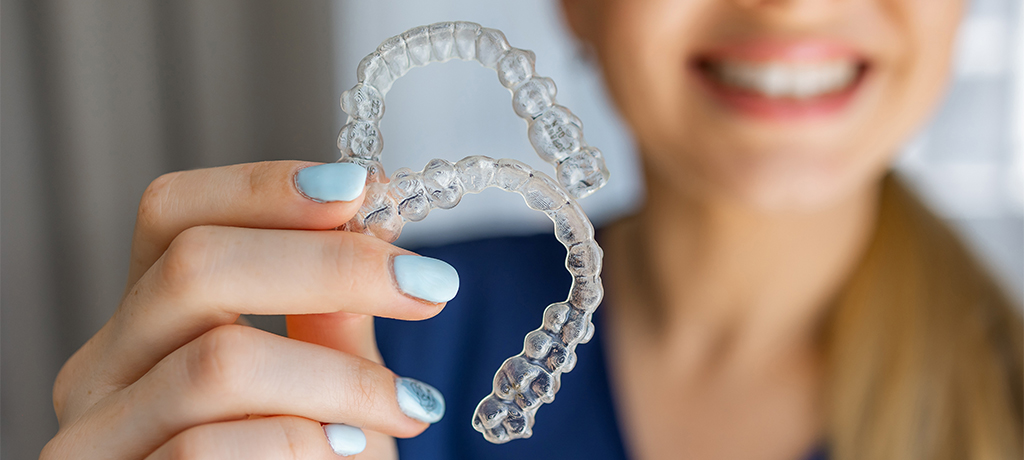 20 Old Brompton Road, South Kensington, London, SW7 3DL
20 Old Brompton Road, South Kensington, London, SW7 3DLWe Are Now Open On Saturdays
We Are Now Open On Saturdays
- Book My Appointment
- 020 31375055
We Are Now Open On Saturdays
We Are Now Open On Saturdays
Located at 20 Old Brompton Road – Just Steps from ![]() South Kensington Tube. Easy Access, Always.
South Kensington Tube. Easy Access, Always.

Let’s be honest - wearing braces or aligners can feel like a full-time job. Between avoiding popcorn at the cinema and navigating the maze of cleaning tools, it’s easy to get overwhelmed. But here’s the good news: with the right care, you can keep your teeth sparkling clean and your treatment on track. Proper oral hygiene during orthodontic treatment isn’t just about avoiding cavities; it’s about ensuring that when your braces come off or your aligners are done, you’re greeted by a smile worth showing off. In London, where trends like Invisalign and fixed braces are increasingly popular, dental hygienists play a crucial role in guiding patients through this journey. Let’s dive into how you can master caring for your braces or aligners while keeping your teeth healthy and strong.
Fixed braces and clear aligners may share the same goal—straightening teeth—but they couldn’t be more different in how they work. Fixed braces consist of brackets glued to your teeth and wires that gradually shift them into place. Clear aligners, on the other hand, are removable trays made from smooth plastic that gently nudge your teeth into alignment.
Each option comes with its own set of hygiene challenges. With braces, food particles can easily get trapped in the brackets and wires, creating a breeding ground for bacteria. Aligners, while removable, require meticulous cleaning since any dirt or bacteria on them can transfer back to your teeth. That’s why aligners need separate cleaning protocols, often involving gentle solutions and careful handling.
Cleaning braces is an art, but with the right tools and techniques, it’s one you can master. Here’s a step-by-step guide:
In the UK, brands like TePe and Curaprox are popular choices for interdental brushes. Remember, consistency is key. Search for “how to clean braces properly UK” for more local recommendations.
Aligners are sleek and discreet, but they demand special attention. Cleaning them improperly can lead to cloudiness or damage. Here’s how to do it right:
For UK residents, products like Retainer Brite or Steradent are excellent options for maintaining crystal-clear aligners. If you’re searching for advice on “cleaning clear aligners without damaging them”, these solutions are worth exploring.
If you’re wondering, “How often should patients with braces see a hygienist in the UK?”, the answer is every 3-6 months. Regular visits ensure plaque and tartar don’t build up around brackets or under aligners. During these appointments, your hygienist will remove stubborn debris, polish your teeth, and provide personalised care tips. Think of it as a tune-up for your smile!
Visit our dental hygienist in London for personalised cleaning tips and regular check-ups to maintain your oral health throughout your orthodontic journey.
One dreaded side effect of braces is decalcification, or white spots, caused by plaque buildup around brackets. The good news? It’s preventable. Fluoride varnishes applied during hygiene appointments can strengthen enamel, while daily brushing and flossing keep plaque at bay.
Nutrition also plays a role. Cutting back on sugary snacks and acidic drinks can make a big difference. For those searching for “preventing white spots on teeth with braces UK”, remember: prevention starts at home.
Flossing with braces can feel like solving a Rubik’s Cube, but it’s essential. Floss threaders help guide floss under wires, while water flossers offer a high-tech alternative. Aligner wearers have it easier—they can simply remove their trays and floss as usual.
Search for “flossing with braces techniques UK” for detailed tutorials. Trust me, once you get the hang of it, it’ll become second nature.
Orthodontic emergencies happen - even in bustling London. If an aligner cracks, avoid wearing it until you can see your orthodontist. For sore gums or ulcers, orthodontic wax can provide relief. And if a wire pokes out, clip it carefully with sterilised nail clippers or contact your hygienist immediately.
If you’re Googling “what to do when aligner cracks UK”, rest assured that most issues have simple fixes.
The journey doesn’t end when your braces come off. Retainers are vital for maintaining results, and they need TLC too. Clean them daily with a soft brush and mild soap, and soak them weekly in a retainer cleaner.
Regular hygiene visits post-treatment ensure your hard-earned smile stays pristine. For more on “after braces cleaning and retention UK”, consult your local hygienist.
Oral Hygiene Instructions for Orthodontic Patients
To stay on top of your oral health, follow this checklist:
Hygienists often use visual aids and apps to help patients stick to their routines. Search for “oral hygiene instructions for orthodontic patients UK” for additional resources.
Consistent hygiene equals faster results and a healthier smile. Whether you’re rocking braces or aligners, regular visits to a dental hygienist in London (or anywhere in the UK) are non-negotiable. Ready to take your oral care to the next level? Book an appointment with your local dental hygienist for expert braces and aligner care. Your future self will thank you!